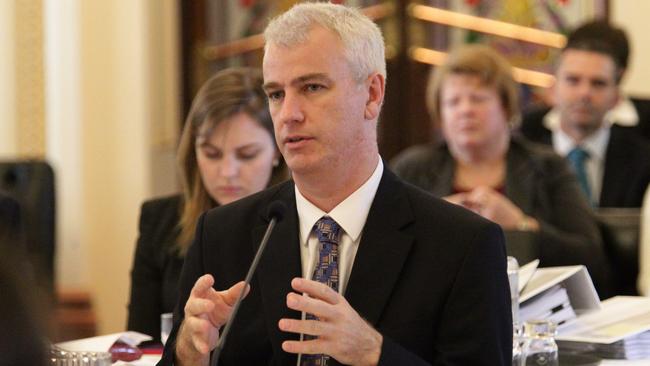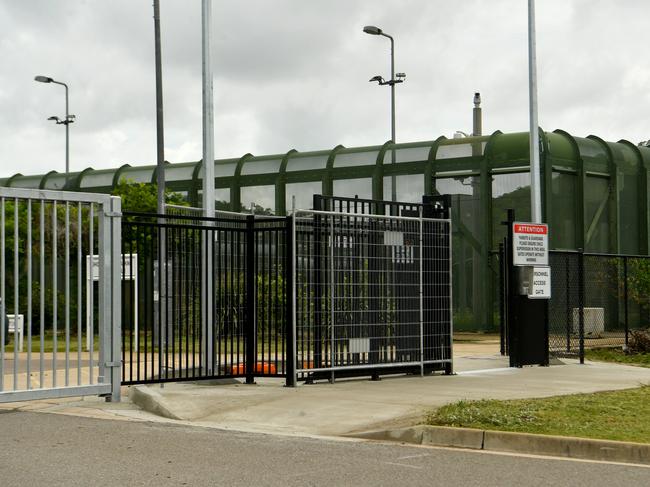Youth crime Qld: Unintended consequences for prison population
Queensland’s prisons watchdog has told a parliamentary committee it does not know if the government has considered the effect crime laws would have on detention facilities.

QLD Politics
Don't miss out on the headlines from QLD Politics. Followed categories will be added to My News.
Queensland’s prisons watchdog has criticised the lack of understanding about how the government’s tough-on-crime laws would affect safety and treatment of inmates at the already overcrowded and understaffed facilities.
The government’s Making Queensland Safer Laws, a centrepiece of its election commitment to reduce crime, were passed in December.
Experts argued the laws would result in more children being incarcerated at understaffed detention facilities and in police watchhouses.
Ombudsman and Inspector of Detention Services Anthony Reilly told a parliamentary committee hearing on Wednesday he was unaware if the government had considered the effect its laws would have on detention facilities.
Mr Reilly, who is responsible for assessing complaints of inmates and ensuring the humane containment of detainees, was asked by shadow attorney-general Meaghan Scanlon whether he thought modelling should have been done to ensure there was sufficient capacity and safety in detention facilities and watchhouses.
“I’m not aware of any modelling, I’m not privy to that,” Mr Reilly said.
“I believe it would have been useful to have done that modelling.”
The inspector acknowledge it would probably be the responsibility of Queensland Police Service and the Department of Youth Justice to model the effect of the new laws.
Asked if the laws should have been delayed to understand the effect, Mr Reilly said his office held fears more children would be locked up.
“If there was a risk that more children were going to need to be detained as a result of the laws then we had a concern about pushing more children back into staying in watchhouses for longer,” he said.
“The Wacol remand facility (in Brisbane’s west) will help to ease some of those pressures.
“However the problem is because there’s only one Wacol remand facility and we live in this massive state, this massive decentralised state, there is a risk children will be wanting to leave their communities to come down here.”

The unsuitability of housing children in police watchhouses and chronic staffing problems plaguing Townsville’s Cleveland Youth Detention Centre have remained an issue for several years.
There was a 21 per cent increase in the rate of serious offending by young people released from Cleveland within 12 months.
Mr Reilly said the short staffing at the facility meant children needed to be kept in their cells for longer without access to rehabilitation measures.
“Each centre has very good facilities, a very good school,” he said.
“The difference between Brisbane and Cleveland Youth Detention Centre is that it’s often harder for the children to access the school and other programs in Cleveland because the staffing problems mean they can’t get out of their cells as the young people of Brisbane do.
“That staff shortage issue isn’t just about the very important issue of children staying in their cells for long periods of time.
“It also means that because they’re in their cells they’re not getting out to access those good services that actually are available in the centre and so it’s a double whammy.”
Greens MP Michael Berkman questioned whether there was a risk existing staffing issues would be amplified or duplicated with the opening of the new Wacol Remand Centre and Lockyer Correctional Centre facilities.
Mr Reilly said the larger South East Queensland labour market could cope with the demand for staff, unlike Townsville, but acknowledged it could be difficult.
“There will be a challenge for the system as it builds new detention centres to recruit sufficient staff to ensure that they are all fully staffed,” he said.
Mr Reilly was also considering if he had powers to undertake inspections of the government’s Regional Reset Camps – designed to rehabilitate youth – which will be outsourced to private operators.
At Cleveland Youth Detention Centre in Townsville almost every inmate is an Aboriginal or Torres Strait Islander child.
“I must admit I’ve been reading statistics for years about that stuff, but it was quite confronting to see,” Mr Reilly said.
He said in the southeast, the proportion of Aboriginal and Torres Strait Islander children in detention remained very high.





